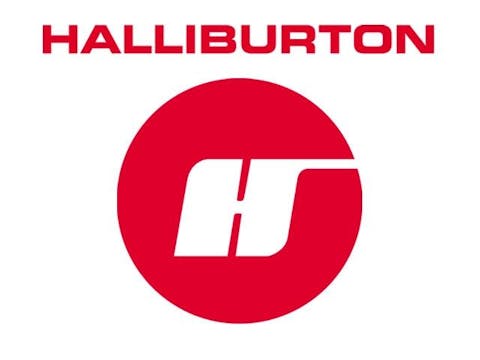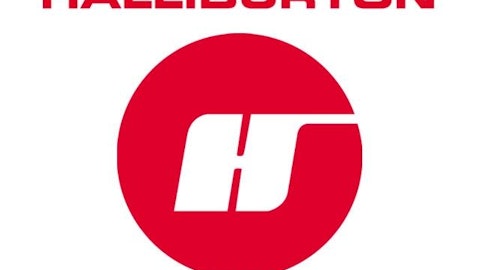The Tweedy Browne Value Fund has managed to deliver a nice annual return of 8.82% for the past 20 years, beating the S&P 500’s annualized return of 7.70%. The fund, with net assets of $600.5 million, or $21.50 NAV, seeks long-term growth by investing in undervalued securities.
In the first quarter 2013, it added more shares of Halliburton Company (NYSE:HAL) and Royal Dutch Shell plc (ADR) (NYSE:RDS.A) to its portfolio. Let’s take a closer look at these two companies to see whether or not investors should follow Tweedy Browne Value Fund into these stocks.
Halliburton – a relatively undervalued company
Tweedy Browne increased its stake in Halliburton Company (NYSE:HAL) from 252,700 shares to 307,865 shares. Halliburton, established in 1919, is a leading provider of services and products to oil & gas and other related energy players, operating in two business segments: Completion and Production and Drilling and Evaluation.
The Completion and Production segment generated most of its operating income, $3.14 billion, whereas the operating profit of the Drilling and Evaluation segment was around $1.67 billion in 2012. The company has a diverse customer base as no customer accounted for more than 10% of its total revenue during any period. Being the largest hydraulic-fracturing service provider in the world, the company has benefited a lot from a recent fracking boom.

Baker Hughes Incorporated (NYSE:BHI) – similar valuation but much less profitable
Compared to its peer Baker Hughes, Halliburton has a lower valuation. At around $43 per share, Baker Hughes is worth around $19.1 billion on the market. It is valued at 6.2 times EV/EBITDA. The company is also a leading supplier of oilfield services, products, and systems to the big global oil & natural gas companies, operating in more than 80 countries.
Recently, Baker Hughes received an unsolicited “mini-tender offer” from TRC Capital to buy up to 2.5 million shares of the company at around $42 per share. Interestingly, the offer came in at a 4.61% off from its recent closing price. Thus, Baker Hughes recommended investors to reject TRC’s “mini-tender offer”.
Income investors would like Baker Hughes Incorporated (NYSE:BHI) due to its consistent dividend payment for the past several decades. It pays around $0.15 per share with a dividend yield of 1.4%.
Halliburton Company (NYSE:HAL) is more profitable than Baker Hughes with a higher operating margin at 15.64%, while the operating margin of Baker Hughes is only 9.81%. Halliburton also enjoys a higher return on equity of 17.84% whereas the return on equity of Baker Hughes is only 7.13%.
Royal Dutch Shell – a global oil & gas play with juicy dividends
The Tweedy Browne Value Fund has also increased its stake in Royal Dutch Shell to more than 603,000 shares. Shell is considered one of the biggest independent oil/gas companies with global operations in the U.S., the U.K., Brazil, Brunei, China, Denmark, the Netherlands, Nigeria, Oman, Qatar, and Russia. The company operates in both upstream and downstream segments.
Most of its revenue, $424.4 billion, was generated from the downstream segment, while the upstream segment contributed only $94.55 billion in revenue in 2012. In terms of geography, Shell derived most of its revenue from two main geographical segments — Europe ($184.2 billion) and Asia, Oceania, Africa ($156.3 billion).
In 2012, Shell had around 13.6 billion BOE in its proved reserves, less than BP plc (ADR) (NYSE:BP)’s proved reserves of more than 17.7 billion BOE. Exxon Mobil Corporation (NYSE:XOM) has the highest proved reserves among the three, at around 25.2 billion BOE.
At $66 per share, Shell is worth around $208 billion on the market. It is valued quite cheaply at only 4.24 EV/EBITDA. What investors might like about Shell is the fact that it is currently paying shareholders dividends with a juicy yield of 4.7%.
My Foolish take
Both Halliburton and Shell could be good stocks to buy at their current prices. Halliburton Company (NYSE:HAL) is relatively cheap compared to its peer, Baker Hughes Incorporated (NYSE:BHI). Shell, on the other hand, has quite a cheap valuation and offers a juicy dividend yield to its shareholders.
The article Tweedy Browne Value Fund Gets More Bullish on These Stocks originally appeared on Fool.com.
Copyright © 1995 – 2013 The Motley Fool, LLC. All rights reserved. The Motley Fool has a disclosure policy.


